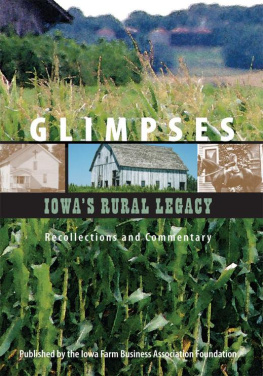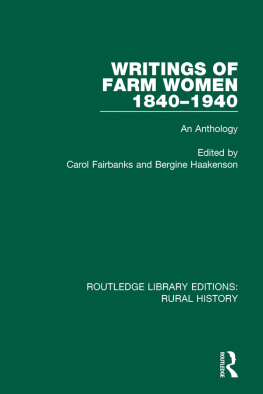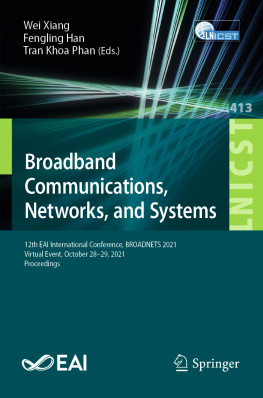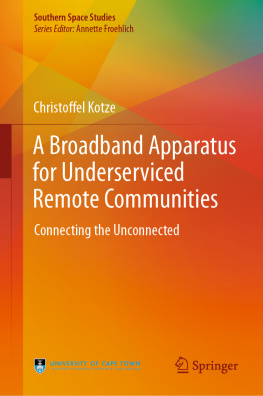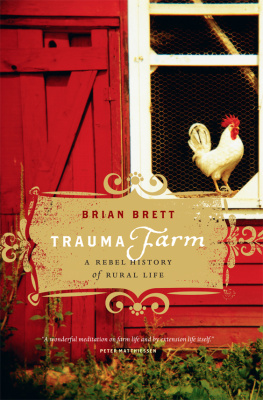Christopher Ali - Farm fresh broadband : the politics of rural connectivity
Here you can read online Christopher Ali - Farm fresh broadband : the politics of rural connectivity full text of the book (entire story) in english for free. Download pdf and epub, get meaning, cover and reviews about this ebook. year: 2021, genre: Politics. Description of the work, (preface) as well as reviews are available. Best literature library LitArk.com created for fans of good reading and offers a wide selection of genres:
Romance novel
Science fiction
Adventure
Detective
Science
History
Home and family
Prose
Art
Politics
Computer
Non-fiction
Religion
Business
Children
Humor
Choose a favorite category and find really read worthwhile books. Enjoy immersion in the world of imagination, feel the emotions of the characters or learn something new for yourself, make an fascinating discovery.

- Book:Farm fresh broadband : the politics of rural connectivity
- Author:
- Genre:
- Year:2021
- Rating:3 / 5
- Favourites:Add to favourites
- Your mark:
- 60
- 1
- 2
- 3
- 4
- 5
Farm fresh broadband : the politics of rural connectivity: summary, description and annotation
We offer to read an annotation, description, summary or preface (depends on what the author of the book "Farm fresh broadband : the politics of rural connectivity" wrote himself). If you haven't found the necessary information about the book — write in the comments, we will try to find it.
Farm fresh broadband : the politics of rural connectivity — read online for free the complete book (whole text) full work
Below is the text of the book, divided by pages. System saving the place of the last page read, allows you to conveniently read the book "Farm fresh broadband : the politics of rural connectivity" online for free, without having to search again every time where you left off. Put a bookmark, and you can go to the page where you finished reading at any time.
Font size:
Interval:
Bookmark:
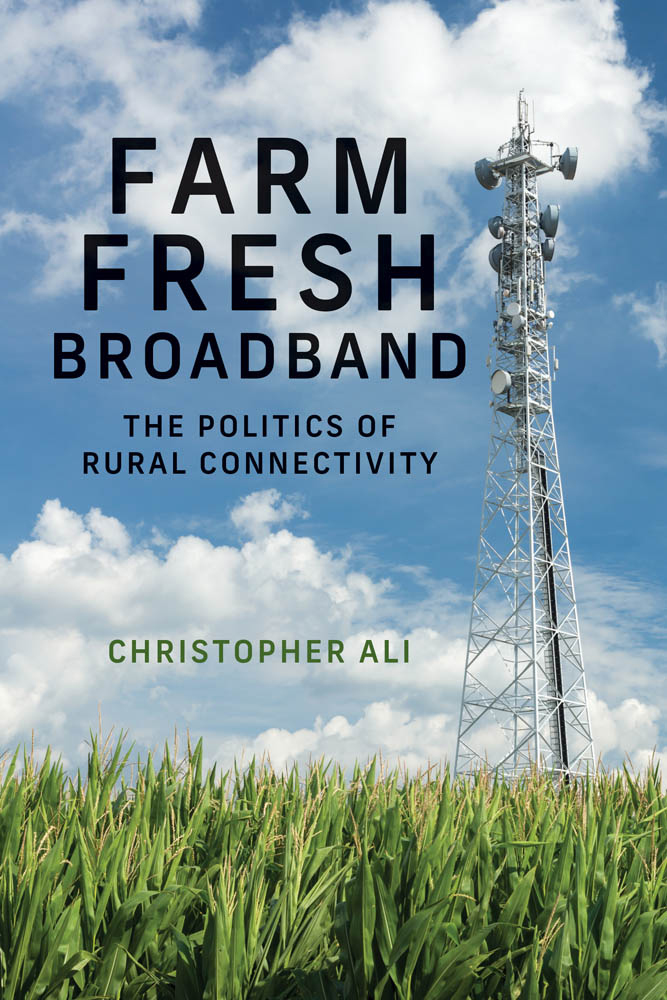
Information Policy Series
Edited by Sandra Braman
The Information Policy Series publishes research on and analysis of significant problems in the field of information policy, including decisions and practices that enable or constrain information, communication, and culture irrespective of the legal siloes in which they have traditionally been located as well as state-law-society interactions. Defining information policy as all laws, regulations, and decision-making principles that affect any form of information creation, processing, flows, and use, the series includes attention to the formal decisions, decision-making processes, and entities of government; the formal and informal decisions, decision-making processes, and entities of private and public sector agents capable of constitutive effects on the nature of society; and the cultural habits and predispositions of governmentality that support and sustain government and governance. The parametric functions of information policy at the boundaries of social, informational, and technological systems are of global importance because they provide the context for all communications, interactions, and social processes.
A complete list of the books in the Information Policy series appears at the .
Farm Fresh Broadband
The Politics of Rural Connectivity
Christopher Ali
The MIT Press
Cambridge, Massachusetts
London, England
2021 Massachusetts Institute of Technology
All rights reserved. No part of this book may be reproduced in any form by any electronic or mechanical means (including photocopying, recording, or information storage and retrieval) without permission in writing from the publisher.
The MIT Press would like to thank the anonymous peer reviewers who provided comments on drafts of this book. The generous work of academic experts is essential for establishing the authority and quality of our publications. We acknowledge with gratitude the contributions of these otherwise uncredited readers.
Library of Congress Cataloging-in-Publication Data
Names: Ali, Christopher, author.
Title: Farm fresh broadband : the politics of rural connectivity / Christopher Ali.
Description: Cambridge, Massachusetts : The MIT Press, [2021] | Series: Information policy series | Includes bibliographical references and index.
Identifiers: LCCN 2021000474 | ISBN 9780262543064 (paperback)
Subjects: LCSH: Rural telecommunicationGovernment policy. | Broadband communication systemsGovernment policy. | Rural telecommunicationEconomic aspects. | Broadband communication systemsEconomic aspects. | Digital divide.
Classification: LCC HE7645 .A45 2021 | DDC 384.3/2091734dc23
LC record available at https://lccn.loc.gov/2021000474
d_r0
To Benmy heart
To Tuna, Titan, and Stellaour home
The future belongs to the connected.
Jessica Rosenworcel, FCC Commissioner and Acting Chair
Our future town square will be paved with broadband bricks.
Michael J. Copps, Former FCC Commissioner and Acting Chair
List of Figures
The National Broadband Map as of 2018.
Broadband deployment in Louisa County, Virginia.
Broadband deployment in Louisa County, Virginia (without satellite).
Average download and uploads speeds from Louisa County, Virginia.
Stakeholder typology.
Rock County, Minnesota.
Installation timeline for Rock County Alliance broadband network.
Broadband availability in Minnesota at 100 Mbps/20 Mbps, 2018.
The Rock County Alliance rock.
The rural broadband model.
Ponder These Nine before You Sign brochure.
List of Tables
Percentage of Americans with access to fixed terrestrial broadband (population in millions)
The footprint of fixed broadband technologies in rural America
Recipients of Connect America Fund II
Top four winners of the CAF II reverse auction
FCC/USAC rural broadband subsidy programs (2019)
RUS broadband loan and grant programs
Actor perceptions of the RUSs stakeholder status
Primary method of internet access on American farms (2017 vs. 2019)
During the first decades of the twentieth century, the rural Midwest boasted the densest telephone penetration in the United States. The percentage of the population on the network grew rapidly after an enterprising dentist returned to Iowa from a Worlds Fair and set up a line linking his office to his house so he could go home for lunch. Farmers set up their own lines along rural fencing; housewives served as operators, working out of their kitchens. Seven decades later, Canada became the first government outside of the United States to enter the formal internet design process with its call to make sure that those in rural areas would have access.
AT&T was perceived as a monopoly in the early 1980s when an antitrust agreement required the company to divest itself of local telephony, but there were actually 14,000 telephone companies and cooperatives in the United States at the time, almost all rural. Although these were all separate organizations, they were experienced as a single system because nationalization of the private sector entities providing telephony during World War I made network effectsthe fact that the value of a communication network increases the more people are on itvividly clear, so interconnection was one of the first regulatory mandates put in place.
It was also in the 1980s that rural communities in a Minnesota region, grown impoverished after the mining industry collapsed, laid down their own fiber-optic cables. That was a twoferthe cables were first put in to enable schools to share rare resources, such as foreign language teachers. Once in, they also attracted industry and telework to the region, with significant benefit to the economy. Although it had responsibility for telecommunications, the states public utilities commission turned its eyes away when these independently installed fiber cables were brought to its attention because, regulators said, they simply didnt know what to do about it. When those who laid the cables were asked how they accomplished this, the answer was simple: they bought some fiber, dug ditches, and laid it. Precision agriculture, the use of GPS to target water and fertilizer where specifically needed, developed during the same period.
Sociologists Phillip Tichenor, George Donohue, and Clarice Olien were looking at geographic as well as socioeconomic differences when they found evidence of the knowledge gap, the relationship between access to information and socioeconomic class, in the 1970s. By the mid-1990s, this became known as the digital divide, with a special emphasis on access to the infrastructure through which information, and knowledge, can be acquired. The digital divide exists across countries as well as within them. In this regard, the United States is no outlier. (In 2019, not only did Nordic countries such as Finland, Norway, and Sweden, come out ahead of the United States in terms of internet penetration, but so did Kuwait, Aruba, and the Falkland Islands, among others.)
It is to the geographic side of the digital divide that Christopher Ali addresses Farm Fresh Broadband, focusing on barriers to broadband access in the rural United States. The problem is particularly acute on tribal lands, which are excluded from Telecommunications Act of 1996 requirements for public access to the internet in schools, libraries, and medical facilities. The problem, not surprisingly, is one of money. Because of network effects, it made sense for a company with the monopoly-like reach of AT&T before the divestiture to extend service into rural areas. In a competitive environment, though, network providers can cherry pick, serving just those from whom they earn the greatest profits and leaving the rest to the other guys, to no one, or to the communities needing service themselves.
Font size:
Interval:
Bookmark:
Similar books «Farm fresh broadband : the politics of rural connectivity»
Look at similar books to Farm fresh broadband : the politics of rural connectivity. We have selected literature similar in name and meaning in the hope of providing readers with more options to find new, interesting, not yet read works.
Discussion, reviews of the book Farm fresh broadband : the politics of rural connectivity and just readers' own opinions. Leave your comments, write what you think about the work, its meaning or the main characters. Specify what exactly you liked and what you didn't like, and why you think so.

